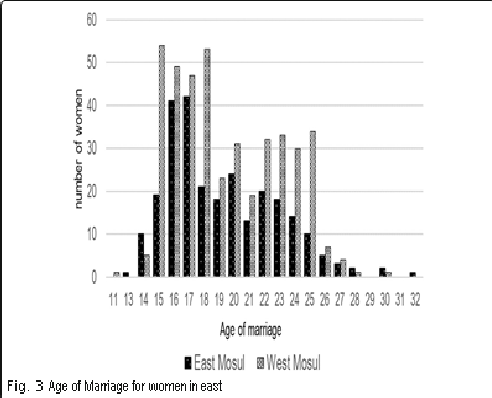Living in Mosul during the time of ISIS and the military liberation: results from a 40-cluster household survey
External link
Original Article
Background: In June 2014, an estimated 1500 fighters of the Islamic State of Iraq and Syria (ISIS) seized control of Mosul, Iraq’s second city. Although many residents fled, others stayed behind, enduring the restrictive civil and social policies of ISIS. In December 2016, the military activity, known as the liberation campaign, began in east Mosul, concluding in west Mosul in June 2017. Methods: To assess life in Mosul under ISIS, and the consequences of the military campaign to retake Mosul we conducted a 40 cluster-30 household survey in Mosul, starting in March 2017. All households included were present in Mosul throughout the entire time of ISIS control and military action.
Results: In June 2014, 915 of 1139 school-age children (80.3%) had been in school, but only 28 (2.2%) attended at least some school after ISIS seized control. This represented a decision of families. Injuries to women resulting from intimate partner violence were reported in 415 (34.5%) households. In the surveyed households, 819 marriages had occurred; 688 (84.0%) among women. Of these women, 89 (12.9%) were aged 15 years and less, and 253 (49.7%) were aged under 18 at the time of marriage. With Mosul economically damaged by ISIS control and physically during the Iraqi military action, there was little employment at the time of the survey, and few persons were bringing cash into households. The liberation of Mosul in 2017 caused extensive damage to dwellings. Overall only a quarter of dwellings had not sustained some damage. In west Mosul, only 21.7% of houses had little or no damage from the conflict, with 98 (21.7%) households reporting their house had been destroyed, forcing its occupants to move. No houses had regular electricity and there was limited piped water. Inadequate fuel for cooking was reported by 996 (82.9%) households.
Conclusion: The physical, and social damage occurring during ISIS occupation of Mosul and during the subsequent military action (liberation) was substantial and its impact is unlikely to be erased soon.
Keywords: Mosul, Iraq, War, ISIS, Early marriage
Back to Top





